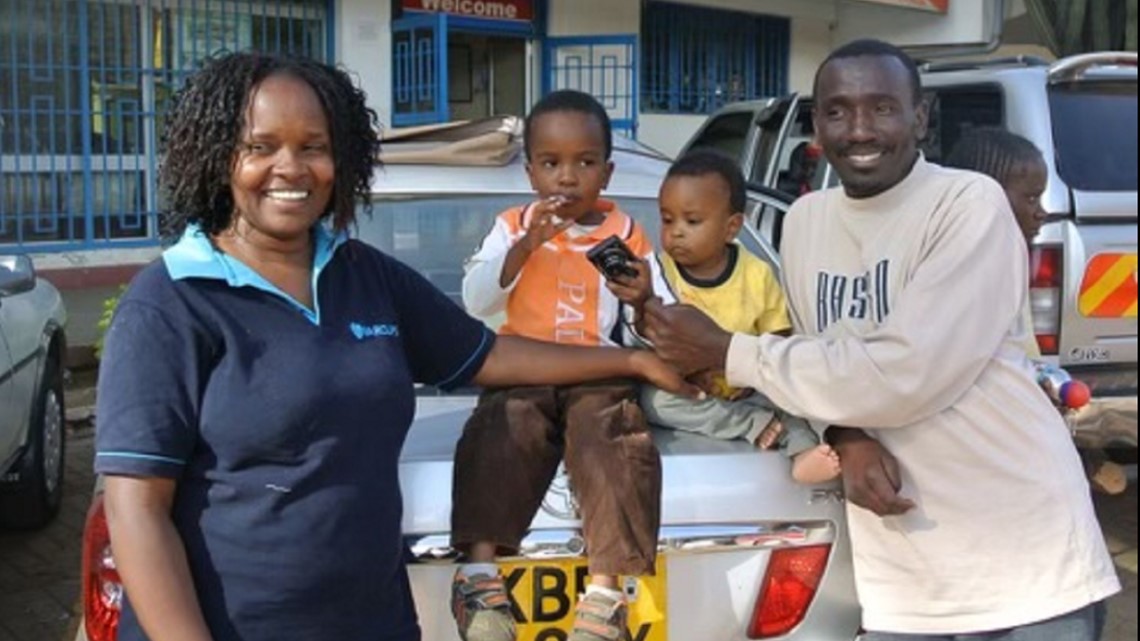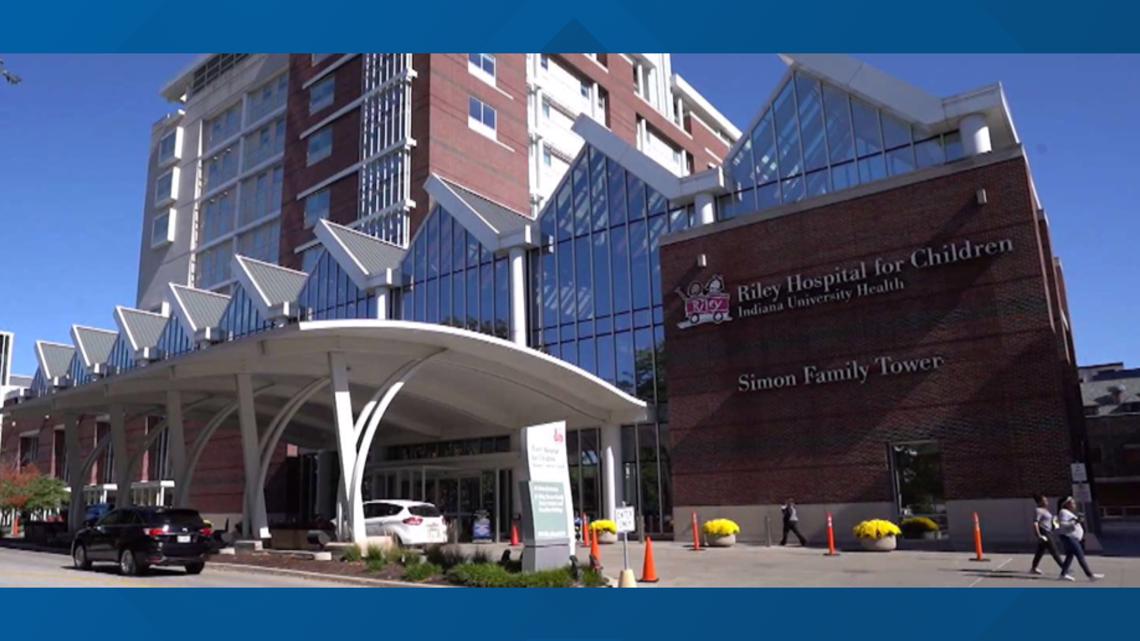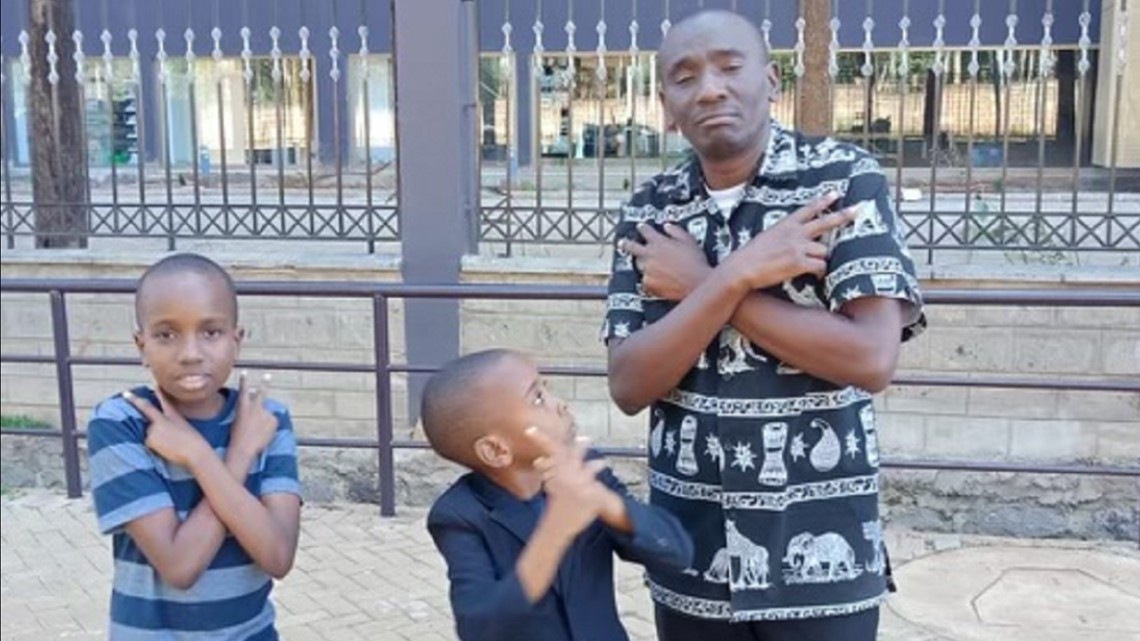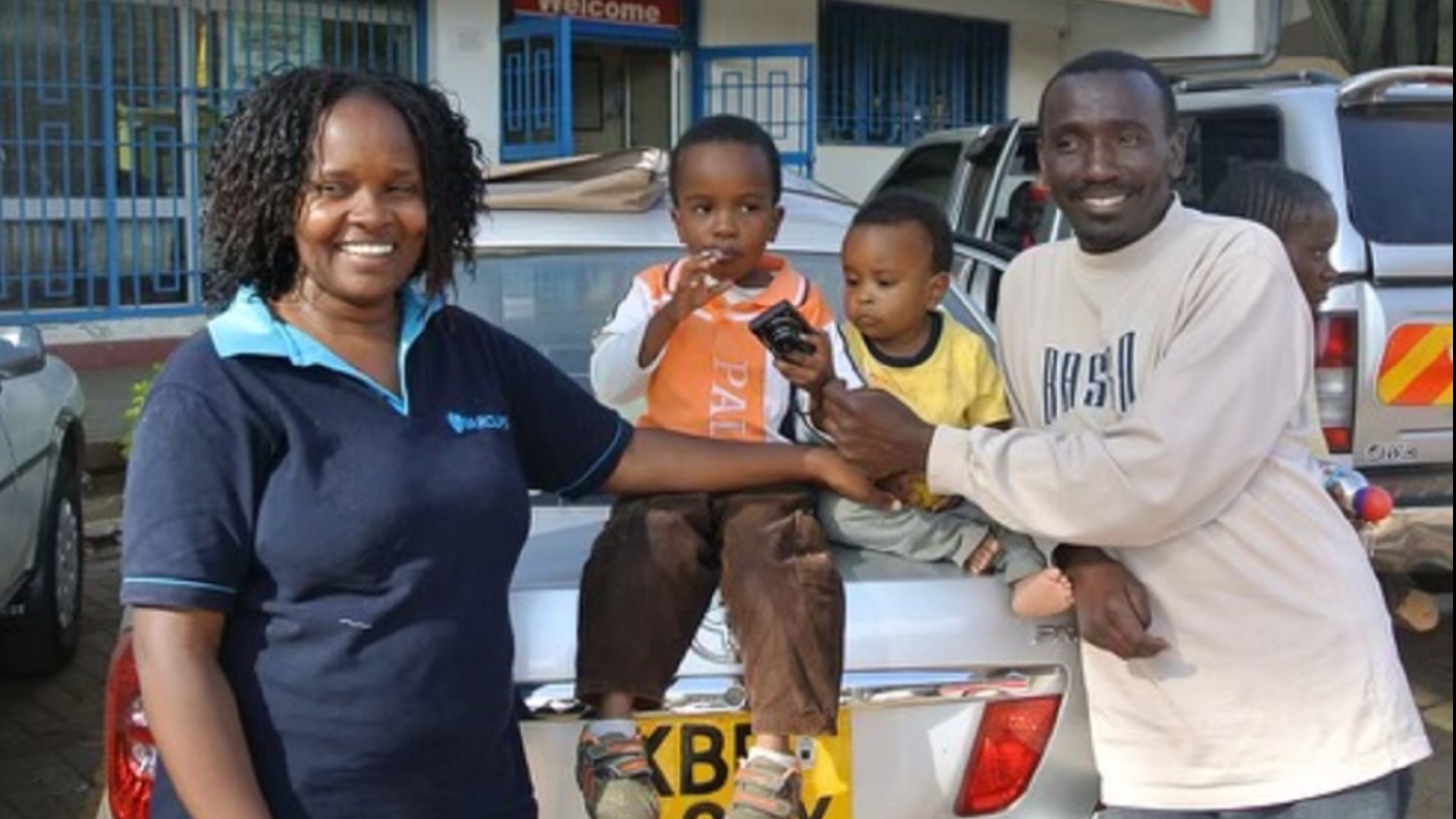INDIANAPOLIS — A family from Kenya said they thought they were out of options when medications weren’t stopping their ten-year-old son’s seizures. That was until they learned about a procedure at Riley Hospital for Children that could improve Mao’s quality of life.
The Oroko family said that words can’t express their gratitude to the health care workers who helped their youngest son.
Mao’s first seizure
Mao Oroko has been experiencing seizures for the last eight years of his life.
“I actually don’t remember (what happens during the seizures),” Mao said.
His father, Obed, said Mao had his first seizure when he was just two years old.
“It was in the morning. He was with his mother in the bedroom,” Obed said. “I was outside the house and my wife comes running with the baby and she said, ‘look at what is happening.’ The baby was shaking.”
They took their son to a hospital and doctors gave them a diagnosis.
“That’s when they said… he could be epileptic,” Obed said.


The medications weren’t working
Seizure medications are supposed to stop seizures, but about 30 percent of patients will not respond to medicine alone and will continue having seizures.
That was the case for Mao. He was part of that 30 percent.
Obed said when the medicine was working more efficiently, Mao would have a seizure every month and a half.
“As soon as the dosage goes down, you see a pattern of every three weeks and we have to go back to the doctor to increase the dosage,” Obed said. "A doctor actually told us there is a chance he will never overcome his seizures. In Kenya, I think we had reached the end of the road. It was medication and then nothing.”
Obed said they began to worry about how Mao would go to school and what his life would be like.
A parent’s constant worry
Although Mao mostly had seizures in the evenings, his parents were concerned about what it would be like if he had one at school. They had considered homeschooling their son, and Obed said the day they dropped him off at school, he and his wife stayed nearby wondering if they had made a mistake.
“If I get a phone call and the number is from the teacher, I’m always like 'this is it,'” Obed said. “I read a quotation which I quite agree with, that as a parent you are only as happy as your saddest child can be. Meaning I am only as happy as he is."
With Mao's seizures, Obed felt there was no possibility he could be happy.
Hope
Obed’s brother is a pulmonologist at Riley Hospital for Children.
“So he told me 'let me ask one of my colleagues about it and see what he says,'” Obed said.
That colleague was Dr. Jeffrey Raskin, who works in pediatric neurosurgery at Riley.
“For patients with continued seizures, despite appropriate medications, they have something called medical refractory epilepsy,” Raskin said. “And those patients deserve a surgical evaluation."


That evaluation includes EEGs, MRIs and other images to help doctors prepare for a diagnostic surgery. During the diagnostic surgery, intercranial electrodes are implanted into the matter of the brain. The data from the electrodes is then recorded and helps the team determine a definitive surgical plan. It is needed because each patient is different.
Riley has “the only program in the state, level 4 epilepsy center, where we are capable of preforming this sort of workup and these sorts of treatments for patients in need,” Raskin said.
If a child in Indiana is having ongoing seizures despite medication, they can refer themselves to Riley Hospital for Children's program without a neurologist or primary care physician referring them.
A painful challenge
“Every epilepsy patient’s surgery is completely individualized, for the most part,” Raskin said.
The surgical team also utilizes cranial robotics and laser ablation for minimally-invasive procedures. But this type of surgery can cost at least $500,000, with part of the cost being a three-week hospital stay.
“We couldn’t afford it.” Obed said. “So that was again another painful…”
“Challenge,” said Mao, finishing his father’s sentence.
“Yes, painful challenge, painful thing to think about,” Obed continued. “But Dr. Raskin was very generous, and he told us about the possibility of exploring some humanitarian aid through the hospital. So, we prayed that it could come through for us.”


Humanitarian Aid Department at Riley
“Riley Hospital for Children has a humanitarian aid department. It’s very easy as a surgeon to liaise with that department and help provide letters of support for visa applications. And approach our CMO of the hospital, Dr. Lane Cox, who ultimately decided that this was an appropriate venture for the child and family to undergo,” Raskin said.
“Lo and behold, we got a communication two weeks later that we are indeed fortunate. The hospital and administration is going to take care of the treatment,” Obed said. “It was magical. It was something we didn’t expect."
Mao’s surgery
Obed was excited for his son's surgery and Mao said he wasn’t nervous.
“I knew that I would recover. I will go to Riley Hospital, everything was as planned, so I was OK,” Mao said.
He hasn’t had a seizure since his surgery.
“I am honestly really happy,” Mao said.
“We’re extremely excited and looking forward to a more happy life after this,” Obed said.
Mao is currently doing physical therapy.
“Mao has an expected post-operative sensory deficit that is going to cause him a slight amount of weakness. Seizure onset zone was really in his primary somatic sensory cortex, which underlies the body’s ability to feel on the left side,” Raskin said. “So we were prepared for him to have a slight deficit post-operatively, and that will get better with time.”
Obed said he can’t wait to return to Kisii, Kenya, hug his family and tell them that, God willing, Mao is seizure free.

